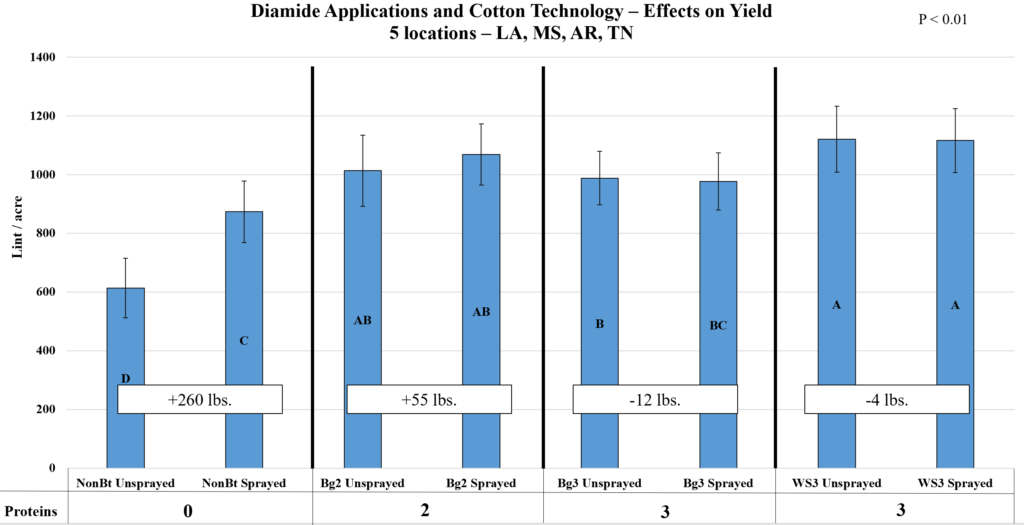Bollworm egg lay across West TN is rapidly increasing. Our trap catches across the survey area are steadily increasing and I’ve started receiving several calls about large numbers of eggs . Fortunately, the vast majority of our cotton is Widestrike 3 (WS3) or Bollgard 3 (BG3). To date, I’ve had no reports of slippage through any three gene cotton in Tennessee. Going forward, our threshold for foliar applications targeting bollworms occurs when a combination of square and boll sampling shows 6 percent or more injury (e.g., 3 percent square injury and 3 percent boll injury, 4 percent square injury and 2 percent boll injury, etc.) and/or 4 or more larvae are present per 100 plants. Treatments based on egg lay is not recommended in 3 gene cottons. My colleague at Mississippi State, Dr. Tyler Towles, summarized our regional data (Fig. 1) demonstrating no economic benefit to making a diamide application to 3 gene cottons. Unless you’re at threshold, save the money on the diamide spray in 3 gene cotton.
One final note, as we are nearing the end of the 2023 growing season below are insect termination timings based on DD60s.
- Tarnished Plant Bugs: NAWF 5 + 300 DD60s
- Bollworms: NAWF 5 + 350-400 DD60s
- Spider Mites: NAWF 5 + 350 DD60s
- Stinkbugs: NAWF 5 + 400-450 DD60s
- Fall Armyworms: NAWF 5 + 400-450 DD60s


